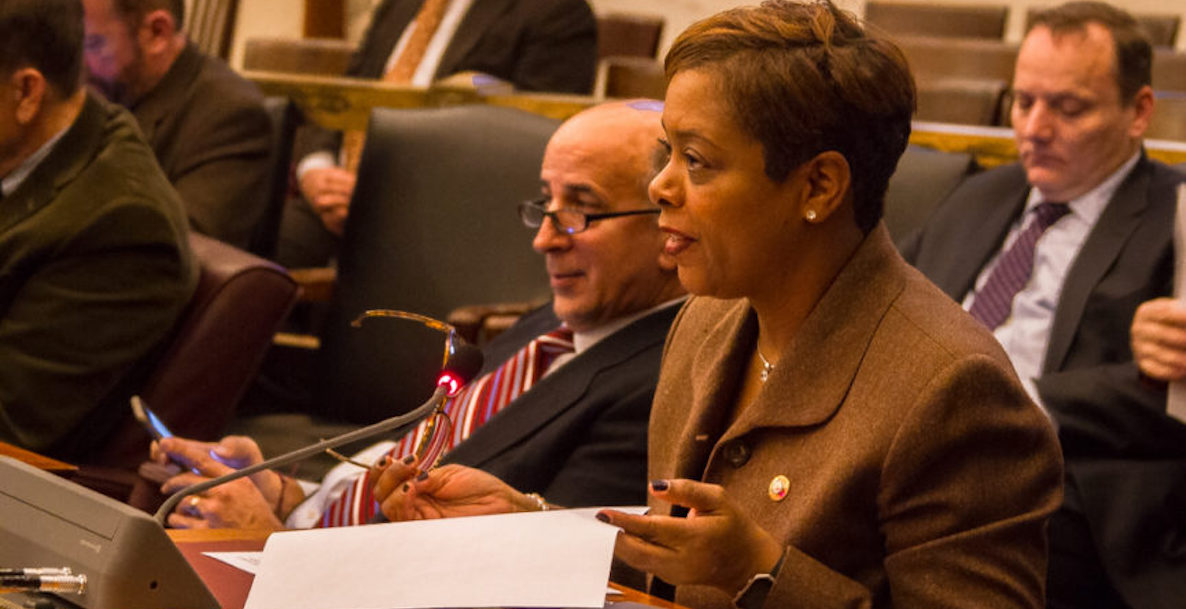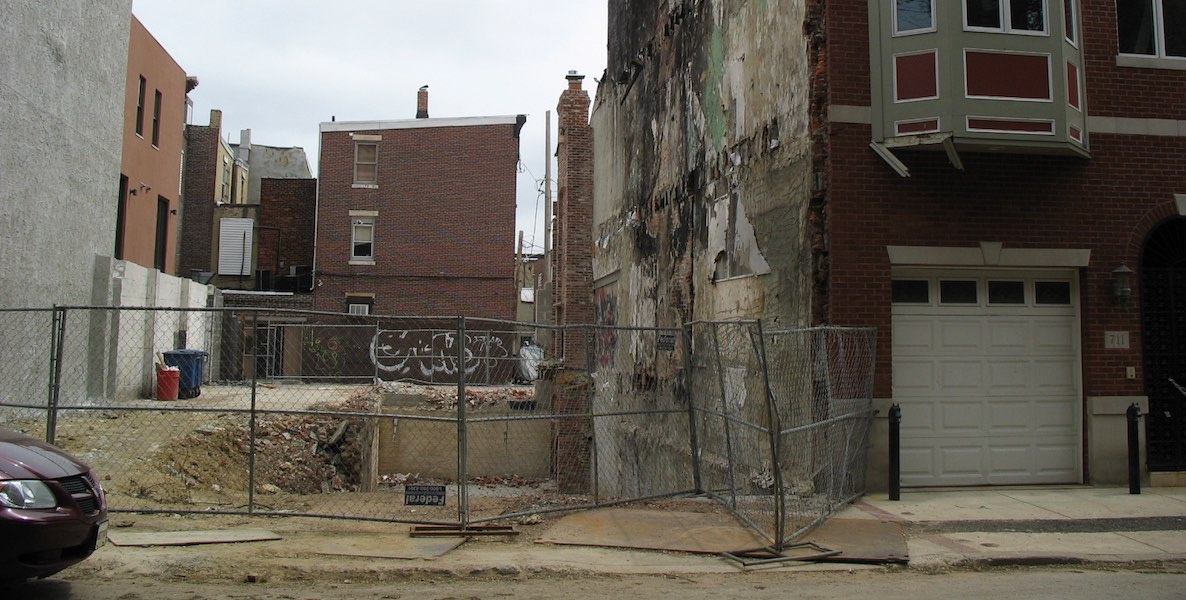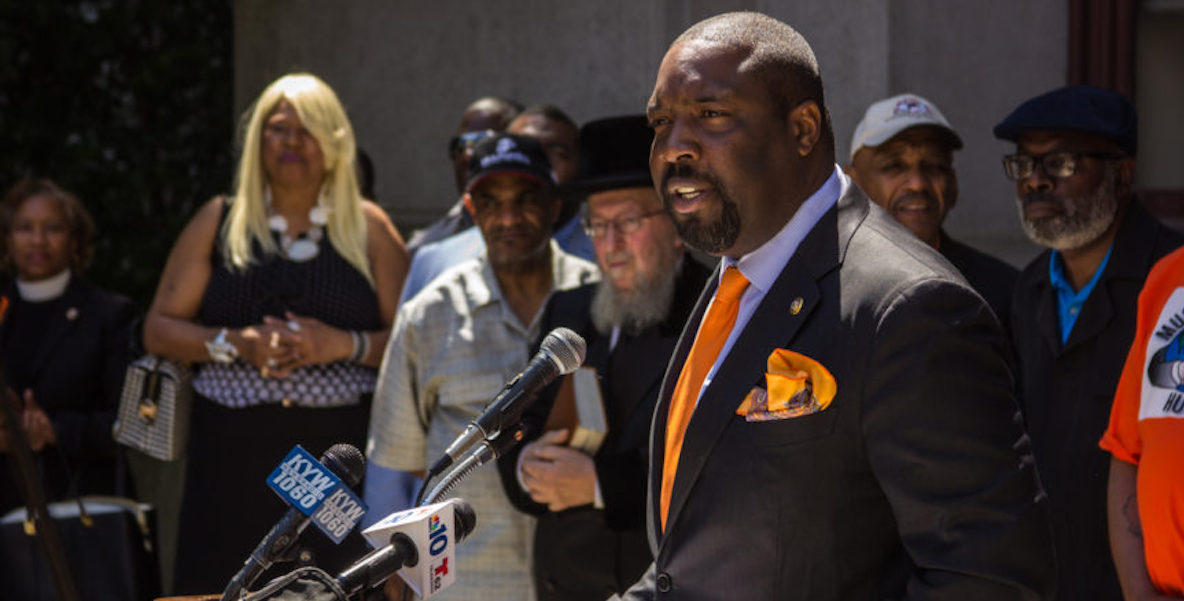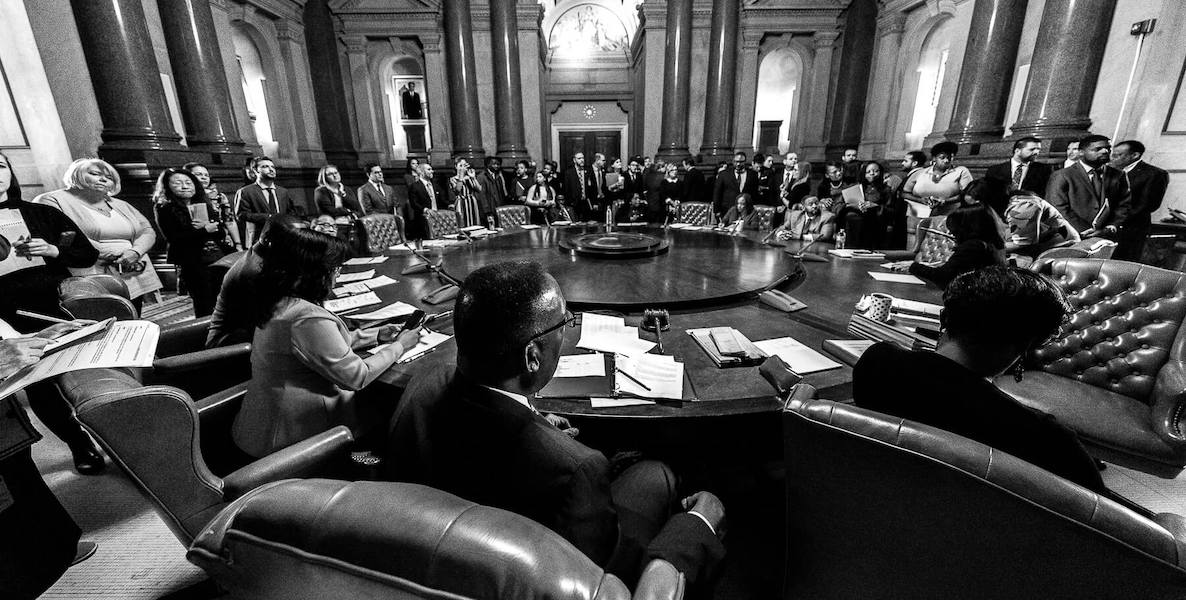A bumper crop of recent reporting about City Council land scandals is conspiring to make the 2019 City Council elections into a welcome referendum on Councilmanic Prerogative—an unfortunate governance tradition that’s landed past Council members in jail, and that stifles Philadelphia from doing any real planning.
First, 2nd District Councilmember Kenyatta Johnson was in the news for steering some city land parcels to a childhood friend and campaign contributor, who requested them for side yards and then flipped them for luxury development. The FBI is investigating the matter.
That scandal was only made possible because of Councilmanic Prerogative, an informal agreement between District members which gives them each total individual control over all zoning and land use within their districts.
Then, 3rd District Councilmember Jannie Blackwell’s campaign kick-off was overshadowed by protests from members of the Black and Brown Workers Cooperative, who objected to Blackwell’s abuse of Prerogative in the Provident Mutual Building redevelopment case. The city had sunk $50 million into preparing the vacant, city-owned Provident Mutual Building near 46th and Market for a new police headquarters, and then when they abandoned that plan, they sought a new use for the property, ultimately selecting a proposal for a public health campus.
Councilmember Blackwell didn’t like who was selected, and instead wanted to steer the building to another developer, her friend Michael Karp, who is a major West Philly landlord, and owner of the Belmont charter school network. Because of the Councilmanic Prerogative tradition, she was able to hold up the whole process for Karp’s benefit, since moving forward required a Council ordinance—an ordinance that the other 16 members refused to pass without Blackwell’s support.
It’s absolutely true that voters can fix this through elections. Prerogative isn’t written down anywhere, but different politicians and candidates have different levels of interest in using it, and in taking concrete steps to reform the practice.
Then, the Inquirer reported that Council President and 5th District Councilmember Darrell Clarke had steered city land near Temple University to former Eagle and wealthy entrepreneur Shawn Bullard at a steep discount, aka subsidized by taxpayers. They also found that some key documents related to that sale have mysteriously gone missing, which probably warrants an investigation by D.A. Larry Krasner’s office.
A look at sales of comparable lots in the area suggests the lots could have gone ![]() for between $150,000 to $250,000 each through competitive bidding—or $600,000 to $1 million for all four. Even a city-ordered appraisal valued them higher than the price Bullard paid.
for between $150,000 to $250,000 each through competitive bidding—or $600,000 to $1 million for all four. Even a city-ordered appraisal valued them higher than the price Bullard paid.
The appraisal put the value of the lots at $495,000 as of January 2015. The city had dropped the total price to $370,000 by the time the PRA’s board approved the sale in June 2016.
“The stark difference between the actual sales price and the appraised value is shocking and probably violated the policies that were in place at the time,” said John Carpenter, a former deputy executive director of the PRA now working as a consultant.
This is all bad, and as Inquirer architecture critic Inga Saffron points out in an excellent column on the subject, the ramifications are really much bigger and more pernicious than just the two-bit corruption that’s been making headlines.
What these five Philadelphia locations have in common:
• The sprawling surface parking lot at Penn’s Landing.
• A one-story supermarket in Society Hill.
• A deteriorating YWCA building in Germantown.
• A demolished Victorian mansion in West Philadelphia.
• A busy stretch of 22nd Street in Fairmount that has no lane markings.
Each site was left in limbo for years, sometimes decades, thanks to City Council’s use of a clubby parliamentary practice known as councilmanic prerogative. Although the name sounds genteel and mannerly, the maneuver can turn an ordinary, mild-mannered district councilperson into power-mad feudal lord. No matter what craziness a local representative proposes, the rest of Council will vote in lockstep, no questions asked, knowing the favor will be returned when they want approval for a special measure in their own district. Usually the special bills involve property sales and zoning […]
Council members will often defend the prerogative by arguing that the local representative knows his or her district best. But, as practiced in Philadelphia, the courtesy goes against a fundamental democratic concept: checks and balances. As you may recall from middle school civics class, the legislature exists to check the power of the executive and prevent a single person from becoming a tyrant. But when a district councilperson can introduce a bill, approve a land sale or change zoning—all without real oversight from fellow legislators—there is no check on that power.
Reporter Julia Terruso thinks this is becoming a big election issue, and it’s absolutely true that voters can fix this through elections. Prerogative isn’t written down anywhere, but different politicians and candidates have different levels of interest in using it, and in taking concrete steps to reform the practice.
Philadelphia 3.0 sent out our 2019 questionnaire to all candidates this week, and we hope to get them on the record on this important topic to help voters figure out who’s who.
Jon Geeting is the director of engagement at Philadelphia 3.0, a political action committee that supports efforts to reform and modernize City Hall. This is part of a series of articles running in both The Citizen and 3.0’s blog.









